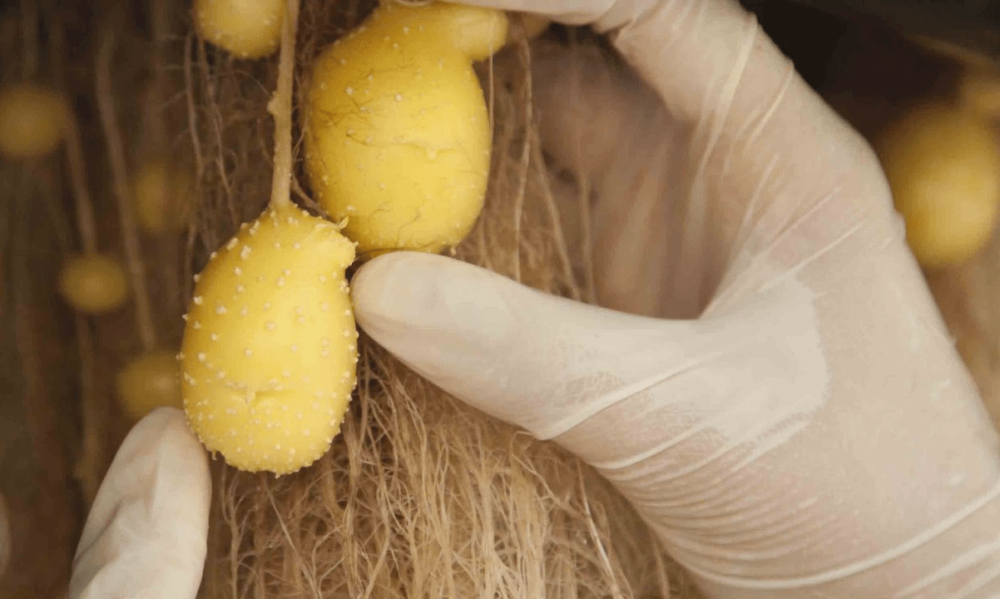Not all of Generation Z are sailing across the Atlantic while berating world leaders for climate change inaction. Some are founding startups.
For a foretaste of what this latest generation of startups means for foodtech, AFN checked in with the Thought For Food Foundation (TFF), which this year has sifted through 5,200 Gen-Z and “late” Millennial entrepreneurial teams from 175 countries as part of its annual TFF Challenge.
The result? A bizarre and intriguing array of micro-bubble generators for aquaculture, indoor-grown potatoes suspended in midair, omega-3 supplements derived from algae, and banana ketchup.
The fork is passing to a new generation
All these next-gen ideas for new food systems formed part of the TFF Challenge’s virtual finale, an event which saw socially distanced explosions of confetti, barnstorming street dancers, and professional American football players expressing their interest in aeroponically grown potatoes. Aptly timed, it was broadcast online last month on World Food Day and watched remotely by foodtech fans from Jakarta to Mexico City.
To slip into reviewer mode, this was a watching experience very unlike the all-too-often drab, repetitive, and glitchy Zoom webinars we’ve all got used to — and a refreshing change that should give webinar producers the world over a nudge to go the extra mile as well. TFF’s production has set a high bar; footage was suffused with electronic music, culminating in a brief (but socially distanced) rave in a factory-cum-nightclub in Rotterdam.
And here, even the competition’s judges showed they had some moves: Merijn Dols, a circular economy guru at Danone, shook off his corporate persona and strutted his stuff, as did Elisabeth Hirschbichler of DSM; their fellow judges, perhaps less in need of gyration liberation from corporate life, were Maame Ekua Manful, founder of the Ghanaian foodtech Sweetpot Yoghurt, and Prima Sung, a designer at Argodesign.
Getting Danone & DSM to dance
For all the event’s eccentricities, this contest does more than get Danone executives to dance. Over the past eight years, the TFF Challenge has helped to catalyze the creation of tens of thousands of new business ideas, and has accelerated and helped to launch more than 60 early-stage startups all around the world, which have collectively raised more than $200 million in subsequent investments. Previous years’ TFF finalists and prize winners include companies like vertical farmer Agrilution, insect bio-refinery Biteback, crop monitoring platform Agrosmart, smallholder marketplace Climate Edge, and pest controller AgroSpheres.
So, who were the winners this year?
Indonesia’s Banoo won the grand prize of $10,000 for its hardware solution targeting smallholder aquaculture farmers, integrating a micro-bubble generator, IoT sensor, and solar panel to increase oxygen levels and water quality in fish ponds.
Coming in a close second and earning a $5,000 check was Mexico’s MicroTerra, which is developing an alternative protein grown in aquatic farms while reducing waste water output and freshwater input, and providing new and valuable revenue streams for fish farmers.
NFL approval for aeroponic potatoes
The event’s partners also handed out a spate of prizes. Kirchner Food Fellows handed out a ‘most investible’ gong to Brazil’s CBA Sementes, which is designing an automated aeroponic system to produce high-quality, disease-free potato seeds. CBA Sementes also won for ‘team spirit’ – an award handed out by the NFL‘s New York Giants linebacker Lorenzo Carter.
Julie Borlaug, vice president of external relations at seed breeding startup Inari, offered a ‘take it to the farmer’ prize of $2,500 to Cameroon’s PFMS — an AI-powered mobile application that helps rural poultry farmers detect diseases, connect with veterinarians, and predict disease outbreaks.
Inari CEO Ponsi Trivisvavet handed out a ‘grow the future’ prize to the UK’s Synthesea, an Imperial College London spinout looking to produce omega-3 for fish feed from plant precursors like algae.
Speaking to AFN, TFF’s CEO Christine Gould said the whole event had ended up very different to the original summit planned for Kuala Lumpur, Malaysia. Inevitably, Covid-19 had forced the transition online, but that had given her the chance to get more creative with cameos from NFL linebackers and Dutch street dancers.
“I didn’t want to put on just another webinar,” she said, and the principles of next-generation foodtech and electronic dance music synergistically “have a lot of synergy.”
Next year, she added, she wants to take the celebration back a generation or two and invite the Spice Girls.





